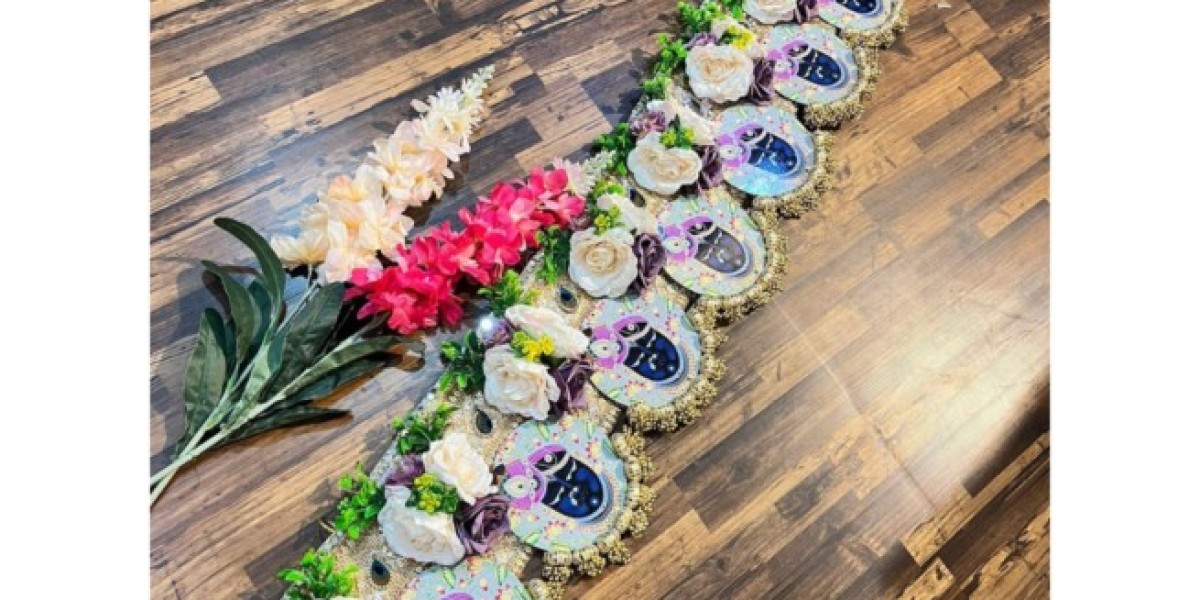The front door of a home is not just a point of entry; it's a symbol of welcome, a portal to your personal sanctuary, and a reflection of your unique style. In many cultures, a Toran, a decorative and auspicious hanging at the front door, holds deep significance. This article delves into the rich tradition of the Buy Front Door Toran, exploring its history, cultural significance, and the beauty it adds to homes.
A Glimpse into History
The tradition of the Toran can be traced back to ancient India, where it was a common element in the architecture and decor of homes. The word "Toran" is derived from the Sanskrit word "Torana," which means "gateway." Originally, Torans were not just decorative; they served as a symbol of hospitality, prosperity, and positive energy.
Cultural Significance
Torans are more than mere decorations; they hold cultural and spiritual importance in many parts of the world. Here are a few examples:
- Indian Subcontinent: In India, Torans are associated with various festivals and occasions. They are believed to bring good luck and ward off negative energy. During Diwali, the Festival of Lights, Torans are hung to welcome Goddess Lakshmi, the deity of wealth and prosperity, into the home.
- Bali, Indonesia: Known as "Penjor," decorative bamboo poles are adorned with colorful flowers and coconut leaves. They are prominently displayed during Galungan, a Hindu Balinese holiday, symbolizing the victory of good over evil.
- Nepal: In Nepal, Torans known as "Bandanwars" are common during weddings and other celebrations. They are made from fresh marigold flowers and are believed to purify the entryway.
- Southern United States: In some regions of the southern United States, a wreath hung on the front door serves a similar purpose, symbolizing hospitality and welcome.
Bringing Beauty and Tradition to Your Home
Front Door Torans are not just a cultural artifact; they are also a beautiful addition to your home decor. Here's how you can incorporate the tradition of the Toran into your living space:
- Choose the Right Design: Torans come in a variety of designs, colours, and materials. Whether you prefer intricate embroidery, beading, or simple yet elegant patterns, there's a Toran to match your style.
- Festive Decor: Use Torans to celebrate special occasions and festivals. For example, during Navratri in India, you can adorn your front door with a vibrant Toran.
- Year-Round Elegance: Torans need not be reserved for special occasions. You can hang a Toran on your front door year-round to bring an artistic and welcoming touch to your home.
- Customization: Consider getting a Toran custom-made to match the color scheme and design of your home.
- Interior Decor: Torans are not limited to the front door; they can also be used as interior decor pieces, adding charm to your living room, dining area, or bedroom.
- Symbol of Unity: In some cultures, Torans symbolize the unity of the family. Consider having a Toran in your living space to represent togetherness and harmony.
Conclusion
The tradition of the Front Door Toran is a beautiful and meaningful way to add elegance to your home. Whether you're celebrating a special occasion, embracing cultural traditions, or simply enhancing the beauty of your living space, a Toran has the power to welcome positivity, luck, and warmth into your home. As you hang a Toran on your front door, you're not just adorning your home; you're connecting with a rich cultural heritage that has transcended time and continues to bring joy to people around the world.
For more details, visit us :








